e-viation, welcome to the Department of War
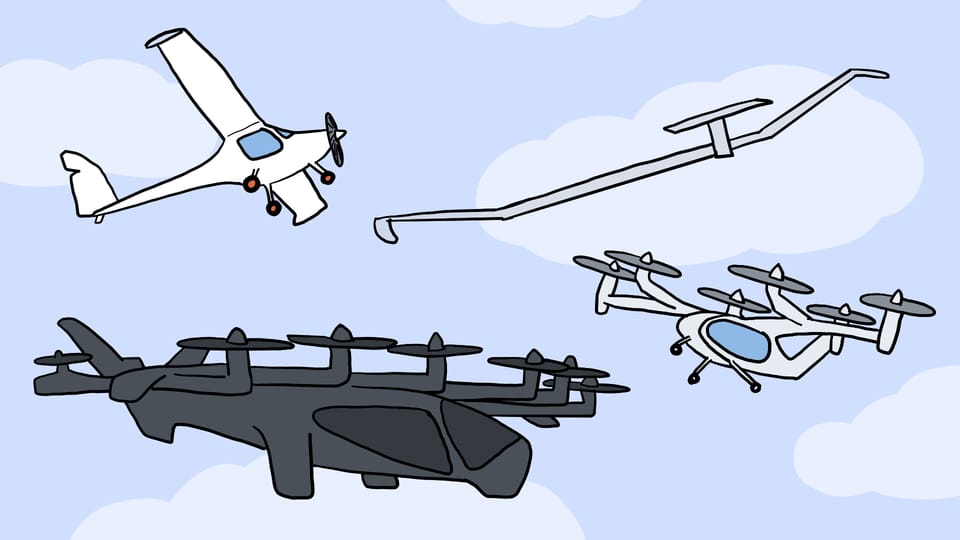
In case you missed it, read our intro post to electric aviation here. Read last week's post on the passenger benefits of e-viation here.
I've spent the last couple weeks gassing up the electric aircraft over at Beta Technologies.
But Beta's not the only company contending for the crown of the clouds.
Today, we peek at some other newfangled, all-electric aviation manufacturers. What distinguishes these companies? Who will prevail? And what potentially problematic values do they all seem to share? (Hint: it's giant military contracts.)
Cast your eye at yonder skies.
1. Joby Aviation
Joby Aviation—formerly Uber Elevate—is in the air taxi game. They see a business case for shuttling the wealthy to and from airports, bypassing car traffic and subway delays. In 2023, Joby completed a test flight from the helipad in downtown Manhattan to JFK airport in just seven minutes.
How one yearns to wake up an hour before one's flight departs, hop into an eVTOL, and arrive at the gate with time enough to peruse the periodicals at Hudson News!
Of course, these air taxis will likely price out those of us who still routinely buy "Basic economy" tickets that don't permit a carryon. Joby hopes to be price-competitive with Uber Black, which costs about *gulp* $200 from Midtown to the airport. Perhaps, with competition and scale, prices will come down.
Joby's aircraft: the S4
Joby's eVTOL looks more like a drone than Beta's. It features six propellers that tilt forward once it's airborne to drive forward propulsion
Range: Up to 150 miles
Max speed: 200 mph
Seats: Four passengers and a pilot.
But won't skies full of eVTOLs be annoying as hell for everyone else?
Only if you hate looking at them! Remember, electric motors produce 100x less noise energy than Internal Combustion (aka gasoline) Engines. Joby conducted a study showing that at 500 meters, their aircraft are "quieter than a typical conversation."
How close is Joby to commercial operations?
Joby has logged nearly 2,000 test flights in the last year, per SkyZero.io, and is reportedly in the final stage of FAA testing. That means they could begin commercial operations as soon as 2026.
Where will Joby launch?
Why, in the United Arab Emirates, of course. Joby is set to shuttle the richest people in the world from the Dubai airport to the ridiculous manmade archipelago of Palm Jumeirah in just under 10 minutes (vs. 45 minutes by car).
Do they have a military contract?
You bet your ass they do. Joby's contract with the Department of War (née Defense) is reportedly worth $131 million for the "provisioning of up to nine aircraft to the U.S. Air Force and other federal agencies."
2. Pipistrel
Pipistrel has been in the electric aircraft game longer than anyone else. They started off by producing propeller-powered hang-gliders back in the 80s in what was then Yugoslavia. Due to government restrictions, they tested their first aircraft in secret, taking off just before dark. Flying at that dusky hour, combined with the triangular shape of the hang-glider wings, earned their aircraft the nickname "bats", which the company formally adopted by naming themselves after the Italian word for bat, pipistrello.
The now-Slovenian manufacturer has evolved far beyond hang-gliders. They produce a variety of ultra-light aircraft—some electric, some gas, some hybrids.
Pipistrel makes a credible claim as the global leader in electric aircraft: their electric planes flew a whopping 240,000 km in just the last year—nearly three times as far as Beta—despite having a battery life that permits only 50 minutes of flight time.
Pipistrel's airplane: the Velis Electro
Now that's an airplane! The ultra-light two-seater is made from composite materials (carbon fiber, Kevlar, and fiberglass).
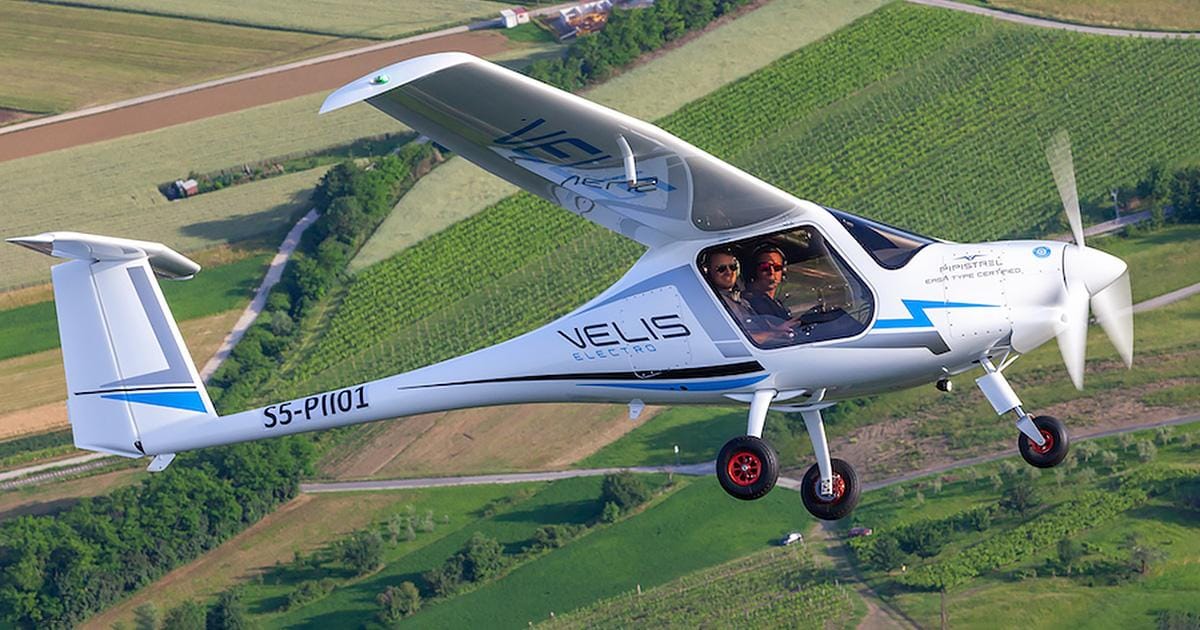
Range: About 50 minutes of flight time
Max speed: ~110 mph
Seats: Two-seater
What's the point of a plane that can only fly for 50 minutes?
It's for training new pilots. By training in an electric plane, they save hundreds of dollars on fuel costs with every flight... even the shorties.
Pipistrel doesn't have a military contract, do they?
Of course they do! Pipistrel has sent nearly 200 training aircraft to the Indian Ministry of Defence. More recently, they landed a contract with the U.S. Air Force.
3. Archer Aviation
Yet another eVTOL company, Archer is lagging behind Beta and Joby in commercial viability, but I include them in this roundup for a couple reasons:
- Their eVTOL looks really wild. It's got twelve propellers—six in the front, six in the back—and boasts a genuinely menacing aura. If I saw this shit in ARC Raiders, I'd run for cover.
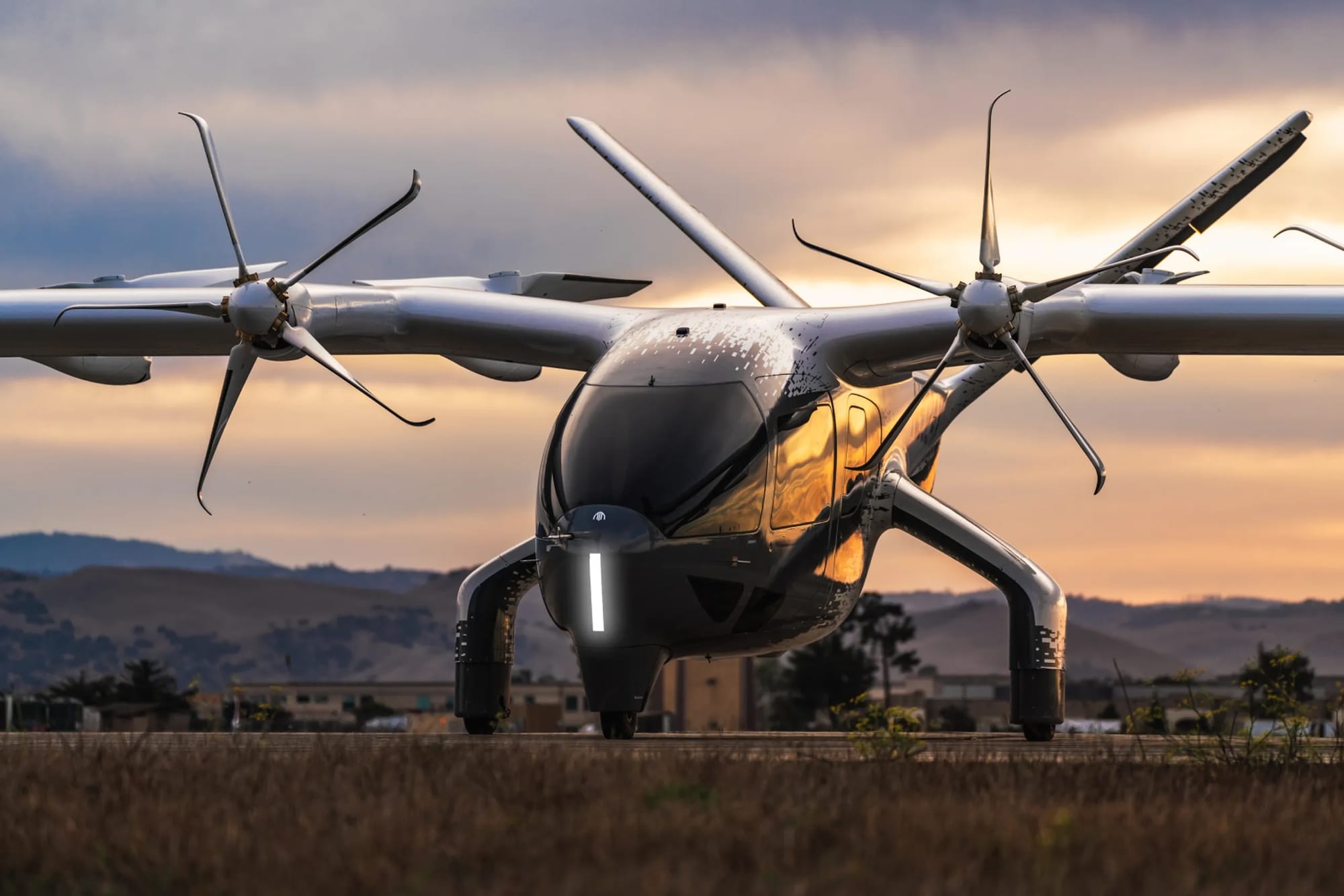
- Archer just purchased a whole-ass airport in the middle of Los Angeles to use as a future air taxi hub and development lab.
Archer's aircraft: Midnight
Range: 100 miles
Top speed: 150 mph
Seats: Four passengers and a pilot
Does Archer have a military contract?
Uh, did you look at the picture?! Obviously they do. Archer's contract with the U.S. Air Force is reportedly valued at up to $142 million.
4. Aalto
Aalto, the UK-based subsidiary of Airbus, makes an electric aircraft that's in a class of its own. It looks more like an albatross than an airplane, with long, thin wings decked out in solar panels.
They call the aircraft a HAPS—High Altitude Platform Station—and it's ultralight, unmanned, and entirely solar- and battery-powered.
Aalto isn't in the business of taxying folks to the airport. Their aircraft flies at 60,000 feet high in the stratosphere, and it basically never has to come back down. This past April, Aalto set a continuous flight record by flying for 67 straight days. Try doing that in a gas-powered plane!
Aalto's aircraft: Zephyr HAPS
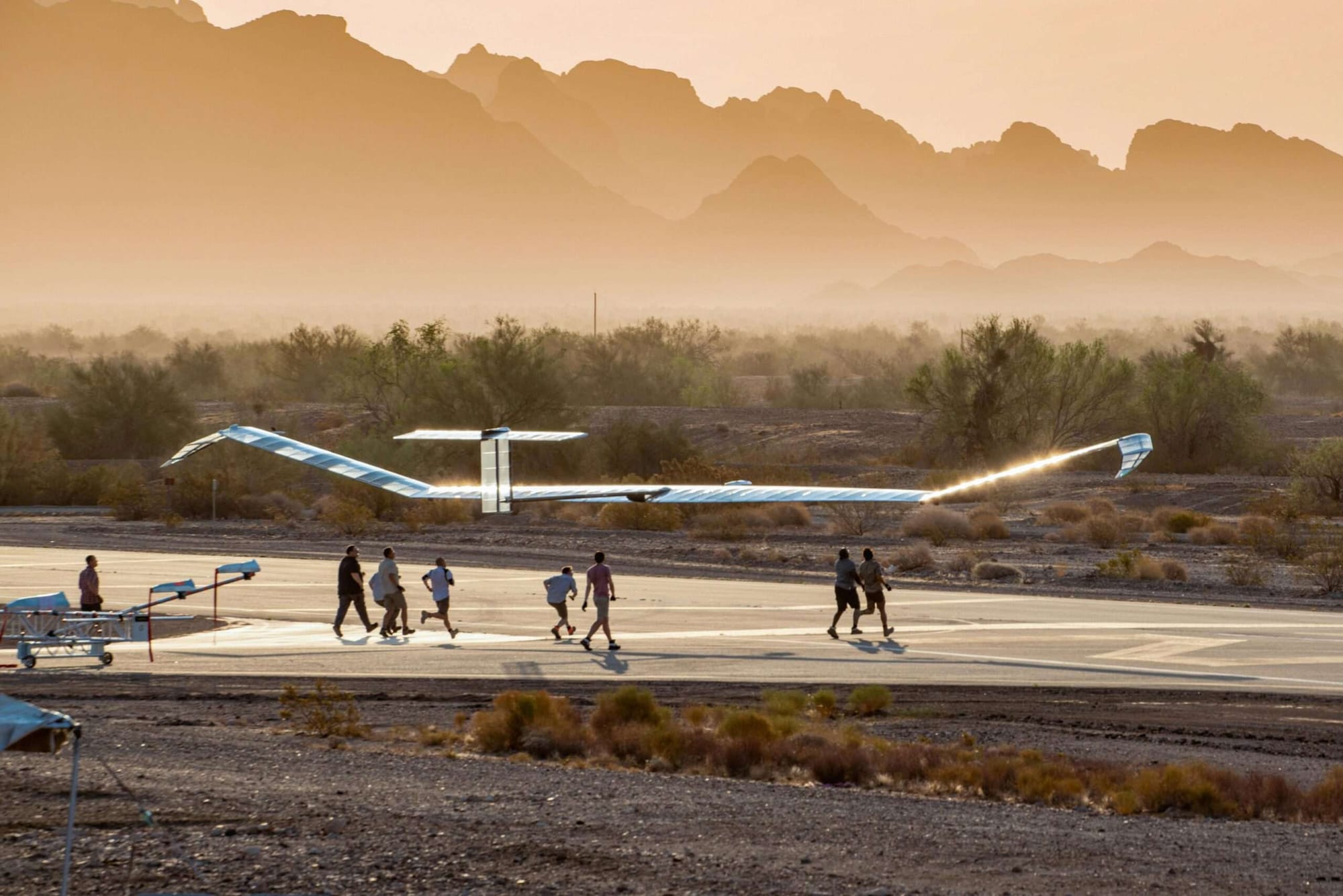
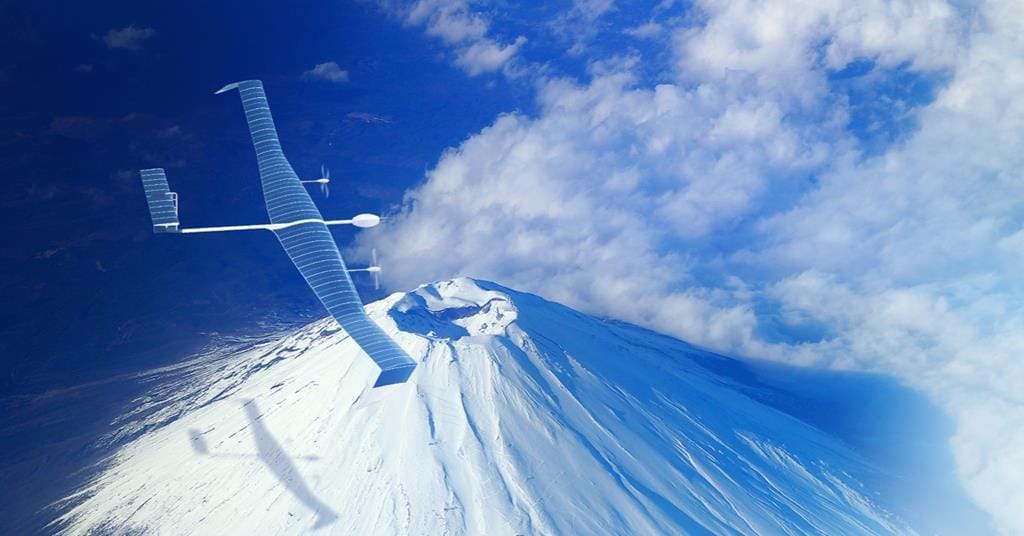
Range: Infinite?
Cruising speed: About 60 mph
Seats: Unnamed
What the hell's it do?
The Zephyr HAPS is effectively a satellite—but way cheaper, because you don't have to pay Elon to launch it into space for you. The aircraft is also "payload agnostic", meaning you can equip it with whatever tools and software you want.
Thus, Zephyr is capable of providing Internet to people on the ground—low-latency, 5G, direct-to-mobile coverage—as well as delivering imagery, communications, and on-demand sensing.
The applications are wide-ranging: it can be used for environmental monitoring, like tracking deforestation and land-use changes, disaster-zone assessment, agricultural monitoring, and more.
Oh, and it can also be used for surveillance.
Does Aalto have a military contract?
Is the Pope a Bears fan? The UK Ministry of Defence has already ordered three of 'em.
What's up with all the military contracts?
It's not that complicated. These are capital-intensive startups that can't fly commercially until they're approved by the FAA (or their own country's regulatory body), a years-long process.
But the U.S. military isn't regulated by the FAA. They use their own “airworthiness authorities" to decide what aircraft are safe enough for the troops. And there seems to be a whole lot more leniency there.
Beta Technologies, I should mention, is all-in on defense contracting. They've got a whole webpage devoted to their militaristic usefulness, replete with renderings of decal-ed unmanned aircraft and portraits of the retired Generals on their Defense Advisory Board.
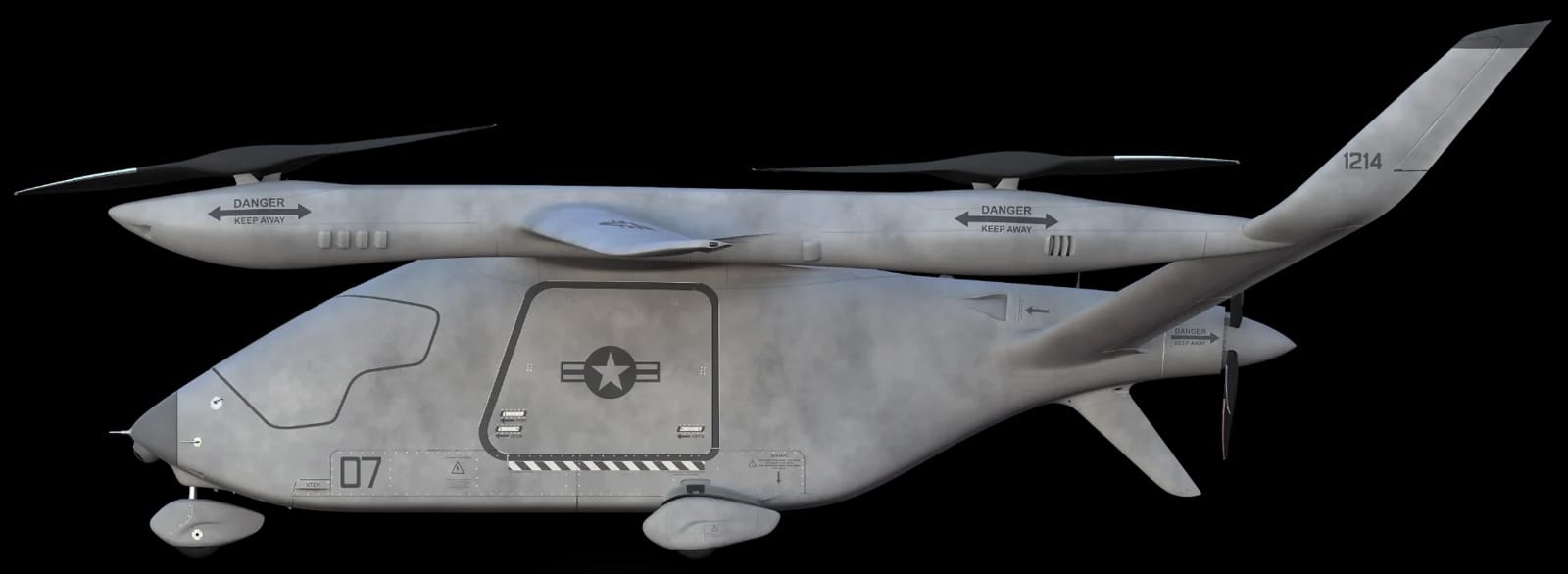
Beta's contracts with the Air Force and Army are reportedly worth around $90 million.
Is it good that the U.S. military—the world's single largest institutional emitter of greenhouse gases—has shown a willingness to embrace electric aviation? Uh, I guess. It's better than flying these same missions with gas-guzzling helicopters. Plus, their investment will likely help these young companies mature, scale up, lower their costs, and begin to take over aviation more broadly.
At what cost to human life?
We may never know. But this is the world we live in. The U.S. military is right now conducting strikes on Venezuelan fishing boats using unmanned MQ-9 Reaper drones. Our government has provided no evidence these boats are carrying drugs.
What has the government said? "Venezuela, for the American oil companies, will be a field day.” That's U.S. Rep. María Salazar (R-Fla.), speaking just two days ago.
So, we're using unmanned drones to start a fake drug war with Venezuela to steal their oil. Hard to argue that's a net-positive for the climate movement, or for the future of humanity.
But this is the world we live in. Here's hoping it can change.


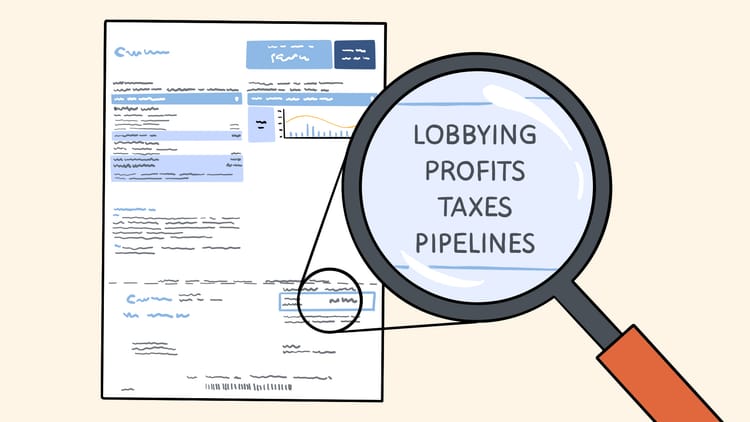

Member discussion